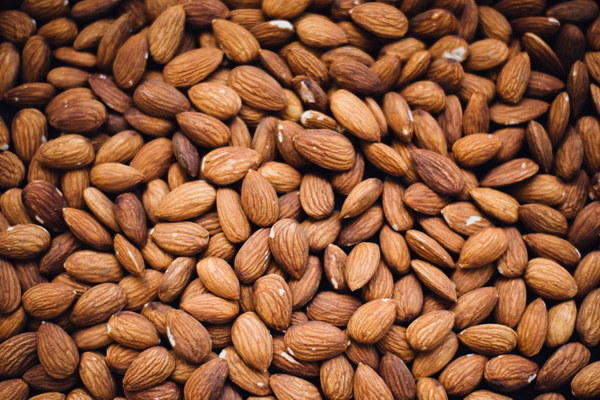Natural Remedies for Lung Inflammation Exploring Traditional Herbs and Their Healing Powers
Introduction:
Lung inflammation, also known as bronchitis or pneumonia, is a common respiratory condition that can cause discomfort, coughing, and difficulty breathing. While modern medicine offers various treatments, many individuals are seeking natural alternatives to alleviate their symptoms. Traditional herbs have been used for centuries to treat lung inflammation, offering a holistic approach to healing. This article explores some of the most effective herbs known for their anti-inflammatory and lung-clearing properties.
1. Elderberry (Sambucus nigra):

Elderberry is a well-known herbal remedy for respiratory conditions, including lung inflammation. It contains flavonoids, which have potent anti-inflammatory properties. Elderberry syrup, made from the berries and flowers of the elder tree, can help reduce inflammation, soothe the throat, and boost the immune system. To use elderberry for lung inflammation, mix one tablespoon of syrup in a glass of warm water and consume it twice a day.
2. Licorice Root (Glycyrrhiza uralensis):
Licorice root is another popular herbal remedy for lung inflammation. It contains glycyrrhizin, a compound that has anti-inflammatory, expectorant, and demulcent properties. Licorice root tea can help relieve cough and reduce inflammation in the lungs. To prepare licorice root tea, steep one teaspoon of dried root in a cup of boiling water for 10-15 minutes. Strain and consume the tea two to three times a day.
3. Mullein (Verbascum thapsus):
Mullein is a plant that has been traditionally used to treat respiratory conditions, including lung inflammation. The leaves and flowers of mullein contain mucilage, a substance that helps to soothe the respiratory tract and reduce inflammation. To use mullein for lung inflammation, prepare a mullein tea by boiling one teaspoon of dried leaves in a cup of water for 10-15 minutes. Strain the tea and drink it twice a day.
4. Thyme (Thymus vulgaris):
Thyme is a well-known herb with antibacterial and anti-inflammatory properties. It can help reduce lung inflammation, relieve cough, and improve respiratory function. Thyme tea can be prepared by steeping one teaspoon of dried thyme leaves in a cup of hot water for 10-15 minutes. Strain and consume the tea two to three times a day.
5. Echinacea (Echinacea purpurea):
Echinacea is an immune-boosting herb that can help fight off infections and reduce inflammation in the lungs. It has been shown to enhance the immune system's ability to fight respiratory infections. To use echinacea for lung inflammation, prepare a tea by steeping one teaspoon of dried echinacea root in a cup of hot water for 10-15 minutes. Strain and consume the tea twice a day.
6. Peppermint (Mentha x piperita):
Peppermint is a natural decongestant and expectorant that can help clear lung inflammation and relieve cough. The menthol in peppermint has anti-inflammatory properties that can soothe the respiratory tract. To use peppermint for lung inflammation, prepare a peppermint tea by steeping one teaspoon of dried peppermint leaves in a cup of hot water for 10-15 minutes. Strain and consume the tea twice a day.
Conclusion:
Natural remedies, such as elderberry, licorice root, mullein, thyme, echinacea, and peppermint, can be effective in treating lung inflammation. However, it is essential to consult with a healthcare professional before starting any new treatment, especially if you have underlying health conditions or are taking other medications. Combining these herbal remedies with a healthy lifestyle and proper medical care can help alleviate symptoms and promote overall respiratory health.









